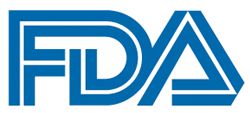Bevacizumab Biosimilar ABP-215 Receives ODAC's Unanimous Support for Range of Tumor Types
In a 17-0 vote, the FDA’s Oncologic Drugs Advisory Committee unanimously recommended the approval of ABP-215, a biosimilar for bevacizumab.
FDA

In a 17-0 vote, the FDA’s Oncologic Drugs Advisory Committee unanimously recommended the approval of ABP-215, a biosimilar for bevacizumab (Avastin) manufactured by Amgen and Allergan, to treat a range of solid tumors.
The committee determined that ABP-215 is highly similar to bevacizumab and there is no clinically meaningful difference between the two drugs. Amgen and Allergan filed a biologics license application (BLA) for 6 indications:
- Metastatic colorectal cancer, with intravenous 5-fluorouracilbased chemotherapy for first- or second-line treatment
- Metastatic colorectal cancer, with fluoropyrimidine/irinotecan- or fluoropyrimidine/oxaliplatin-based chemotherapy for second-line treatment in patients who have progressed on a first-line bevacizumab-containing regimen
- Non-squamous nonsmall cell lung cancer (NSCLC), with carboplatin and paclitaxel for first-line treatment of unresectable, locally advanced, recurrent or metastatic disease
- Glioblastoma, as a single agent for adult patients with progressive disease following prior therapy
- Metastatic renal cell carcinoma with interferon alfa
- Cervical cancer, in combination with paclitaxel and cisplatin or paclitaxel and topotecan in persistent, recurrent, or metastatic disease
ABP-215 was developed as 100 mg per 4 mL and 400 mg per 16 mL single-use vials, the same strength and presentations approved for bevacizumab in the United States. Proposed dosing and administration labeling instructions are also the same.
"The analytical package was strong, well-laid out and, in my opinion, convincing,” said Antonio R. Moreira, PhD, vice provost for Academic Affairs and professor in the department of chemical, biochemical, and environmental engineering at the University of Maryland, Baltimore County.
Some committee members and at least 2 public speakers expressed concern about recommending approval for all 6 indications, based on data from patients with advanced/metastatic NSCLC. In the end, committee members determined that the pharmacokinetic (PK) data and method of action were consistent enough to warrant their support.
“The sponsor and the FDA presented convincing and analytical PK data,” said Thomas S. Uldrick, MD, MS, ‎clinical director of the HIV & AIDS Malignancy Branch at National Cancer Institute. “I appreciate the sponsors scientific justification for extrapolation to other indications.”
The BLA was supported by two studies, a 3-arm, single-dose PK study, 20110216, comparing ABP-215 with US- and EU-approved bevacizumab, and a comparative clinical study, 210120265. The second study compared ABP-215 and EU-approved bevacizumab in patients with advanced/metastatic NSCLC to support the demonstration of no clinically meaningful differences in terms of response, safety, purity, and potency. In the PK study, 68 patients were assigned to ABP-215 and 67 each were assigned to the bevacizumab groups. All healthy male participants (N = 202) received an infusion of 3 mg/kg.
Investigators concluded that the 90% confidence interval (CI) for the ratios of geometric mean of AUC0-∞, AUC0-t, and CMAXdemonstrated PK similarity between ABP-215 and US- and EU-approved bevacizumab. CMAXwas 98.1 (90% CI, 93.7-102.8) between ABP-215 and US-approved bevacizumab, 102.9 (90% CI, 98.2-107.8) between ABP-215 and EU-approved bevacizumab, and 104.9 (100.1-109.9) between US-approved bevacizumab and EU-approved bevacizumab.
Study 20120265 was a randomized, double-blind study comparing ABP-215 (n = 328) and EU-approved bevacizumab (n = 314) in patients with advanced NSCLC. All patients received an infusion of 15 mg/kg every three weeks in combination with 6 AUC carboplatin and 200 mg/m2paclitaxel for 6 cycles.
Overall response rate (ORR) was 39% in the ABP-215 arm compared with 41.7% for EU-bevacizumab (risk ratio [RR], 0.93; 90% CI, 0.8-1.09). There were 2 complete responses in each group, and 38.4% of the ABP-215 group had partial responses versus 41.1% in the bevacizumab group. Duration of response was 5.8 months for ABP-215 (95% CI, 4.9-7.7) compared with 5.6 months with bevacizumab (95% CI, 5.1-6.3).
Forty percent of patients in both groups experienced progression-free survival (PFS) events (hazard ratio [HR], 1.03; 95% CI, 0.8-1.34). Median PFS was 6.6 months for ABP-215 (95% CI, 6.3-7.9) versus 7.0 months in the bevacizumab arm (95% CI, 6.6-8.2).
Trough serum concentrations (Ctrough) were collected on cycle 1 through cycle 4, and cycle 6 pre-dose to describe the PK of ABP-215 and EU-approved bevacizumab. The study was not intended to evaluate PK similarity between the 2 arms, but investigators observed comparable Ctroughand inter-subject variability.








